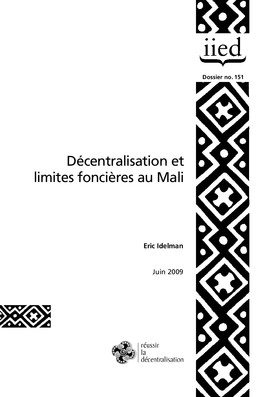Focal point
Location
Mission
Our mission is to build a fairer, more sustainable world, using evidence, action and influence in partnership with others.
Who we are
IIED is one of the world’s most influential international development and environment policy research organisations. Founded in 1971 by economist Barbara Ward, who forged the concept and cause of sustainable development, we work with partners on five continents. We build bridges between policy and practice, rich and poor communities, the government and private sector, and across diverse interest groups. We contribute to many international policy processes and frameworks, including the Intergovernmental Panel on Climate Change, the Millennium Ecosystem Assessment and the UN conventions on climate change and biological diversity.
What we do
IIED carries out research, advice and advocacy work. We carry out action research — generating robust evidence and know-how that is informed by a practical perspective acquired through hands-on research with grassroots partners — and we publish in journals and maintain high research standards. We advise government, business and development agencies, and we argue for changes in public policy. We focus on bottom-up solutions, stay open to flexible, adaptable solutions and are marked by a tradition of challenging conventional wisdom through original thinking.
Resources
Displaying 296 - 300 of 367Land grab or development opportunity? Agricultural investment and international land deals in Africa
Despite the spate of media reports, international land deals and their impacts remain little understood. The report discusses key trends and drivers in land acquisitions, the contractual arrangements underpinning them and the way these are negotiated, and the early impacts on land access for rural people in recipient countries. The focus is on sub-Saharan Africa, with an emphasis on Ethiopia, Ghana, Madagascar, Mali, Sudan, Mozambique and Tanzania. Concludes with recommendations for stakeholders.
Décentralisation et limites foncières au Mali
Au Mali, au début des années 1990, la décentralisation fut d’abord un acte politique permettant de proposer une solution viable au problème de la rébellion touarègue. Ensuite, les aspirations aux idées occidentales démocratiques (pluralisme politique, liberté de la presse, etc.) d’une partie des élites urbaines ont rencontré les plans des occidentaux pour le développement de l’Afrique pour donner un système de décentralisation territoriale à la française, mais où la commune est composée d’un ensemble de villages.
Legal tools for citizen empowerment: Getting a better deal for natural resource investment in Africa – Highlights and lessons learned (2006-2009)
Summarises highlights from the first two and a half years of the programme, including insights on the legal levers that can be used to maximise local voice and benefit from local land rights to investor-state contracts through to community-investor partnerships, as well as a few milestones in IIED’s work on legal literacy training, exchange of experience and policy advocacy.
Fuelling exclusion? The biofuels boom and poor people’s access to land
Explores current and potential impacts of the increasing spread of biofuels on access to land in producer countries, particularly for poorer rural people. Finds that biofuels could revitalise rural agriculture and livelihoods, but may also marginalise and exclude poorer people – particularly where local land rights are insecure, capacity to enforce them is limited, and major power asymmetries shape relations between local resource users and large industry players.
Legal empowerment in practice: Using legal tools to secure land rights in Africa
In many parts of Africa, legal services organisations have developed innovative ways for using legal processes to help disadvantaged groups have more secure land rights. Their approaches, tools and methods vary widely – from legal literacy training to paralegals programmes, from participatory methodologies to help local groups register their lands or negotiate with government or the private sector through to legal representation and strategic use of public interest litigation.





